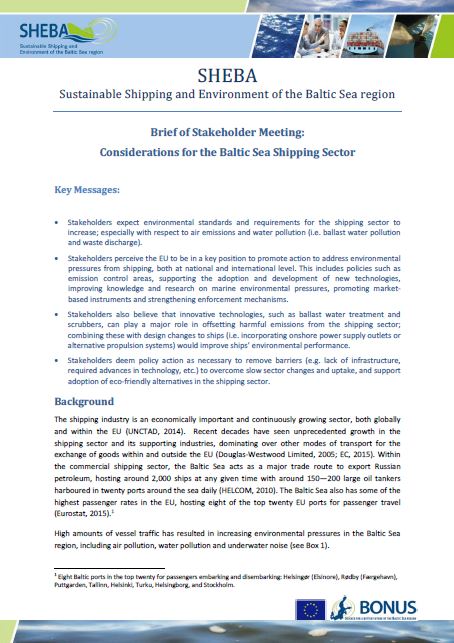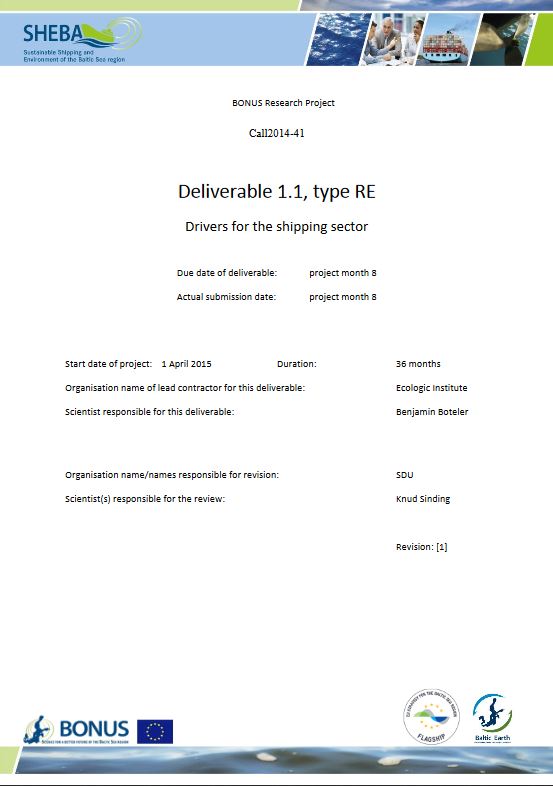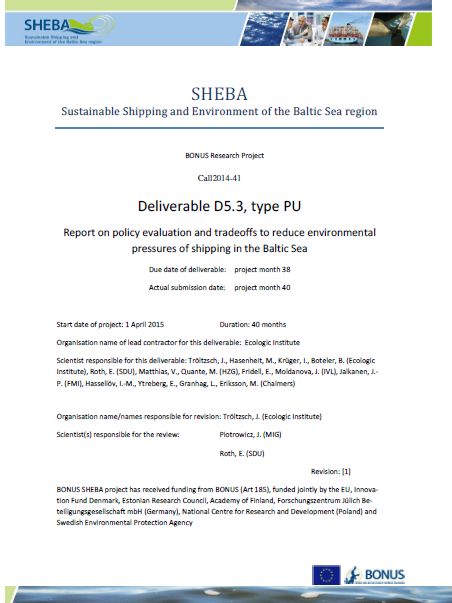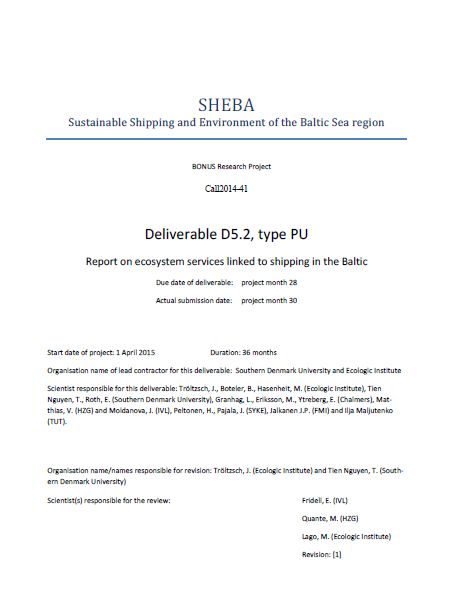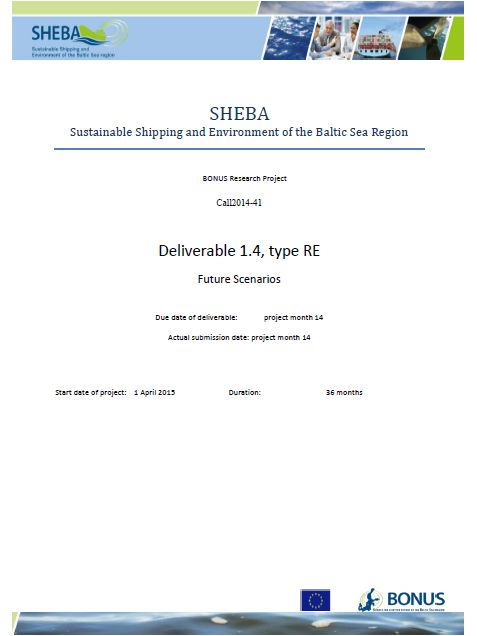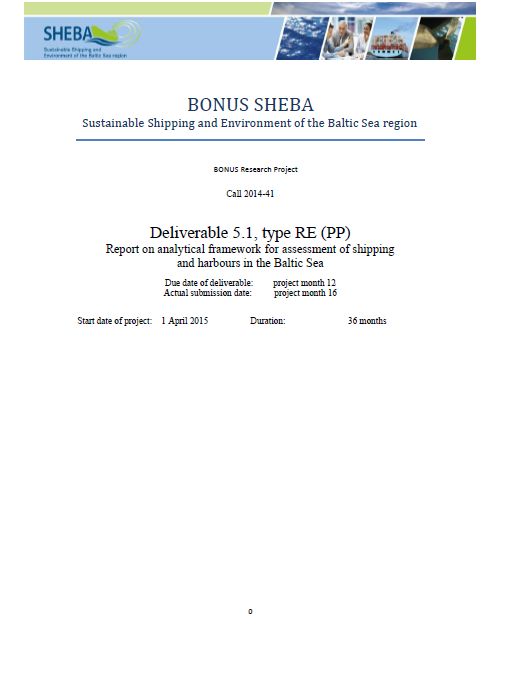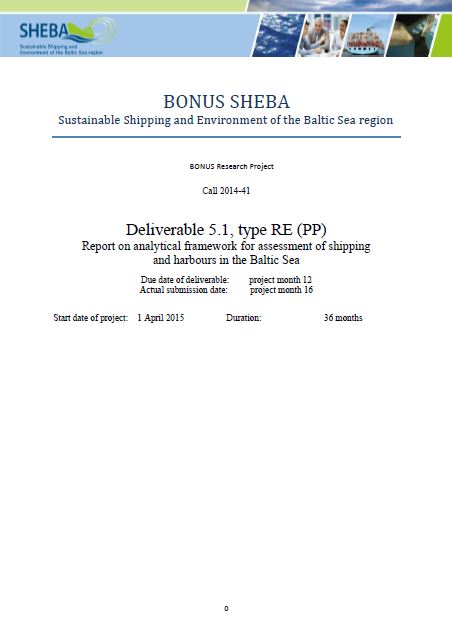Considerations for the Baltic Sea Shipping Sector
Brief of Stakeholder Meeting
- Publication
- Citation
Quante, Markus; Insa Puchert; Katrina Abhold et.al. 2016: Brief of Stakeholder Meeting: Considerations for the Baltic Sea Shipping Sector.
The BONUS project SHEBA (Sustainable Shipping and Environment in the Baltic Sea region) held a stakeholder workshop to elicit experiences and knowledge of stakeholders. The workshop aimed to better understand the environmental pressures of shipping in the Baltic and how these impacts might change over time, as well as which policies and abatement technologies could be important in the future. Held from 29 until 30 September 2015 in Hamburg (Germany) participants gathered from various shipping‐related groups, including port authorities, shipping industry representatives, government officials, leisure boat industry representatives, coastguard services, and academia. The main findings of this stakeholder consultation are available for download.
At the workshop, stakeholders discussed environmental impacts, policy and technologies relevant to shipping in the Baltic Sea, with sessions focused on the current policy mix, the future of shipping policy (mainly International and EU policy), and the future of shipping in general. The main findings of this stakeholder consultation are as follows:
- Stakeholders expect environmental standards and requirements for the shipping sector to increase; especially with respect to air emissions and water pollution (i.e. ballast water pollution and waste discharge).
- Stakeholders perceive the EU to be in a key position to promote action to address environmental pressures from shipping, both at a national level as well as within international fora. This includes policies such as emission control areas, supporting the adoption and creation of new technologies, improving knowledge and research on marine pressures, promoting market-based instruments and strengthening enforcement mechanisms.
- Stakeholders also believe that innovative technologies, such as ballast water treatments and scrubbers, can play a large role in offsetting harmful emissions from the shipping sector; combining these with design changes to ships (i.e. incorporating onshore power supply outlets or alternative propulsion systems) would improve ships’ environmental performance.
- Stakeholders deem policy action as necessary to remove barriers (e.g. lack of infrastructure, required advances in technology, etc.) to overcome slow sector changes and uptake, and support adoption of new alternatives to reduce the environmental impact of the shipping sector.
Results of this consultation will be used to help develop future scenarios of shipping in the Baltic Sea, which will feed into model calculations and policy assessments of shipping emissions to air, water and underwater noise pollution.
